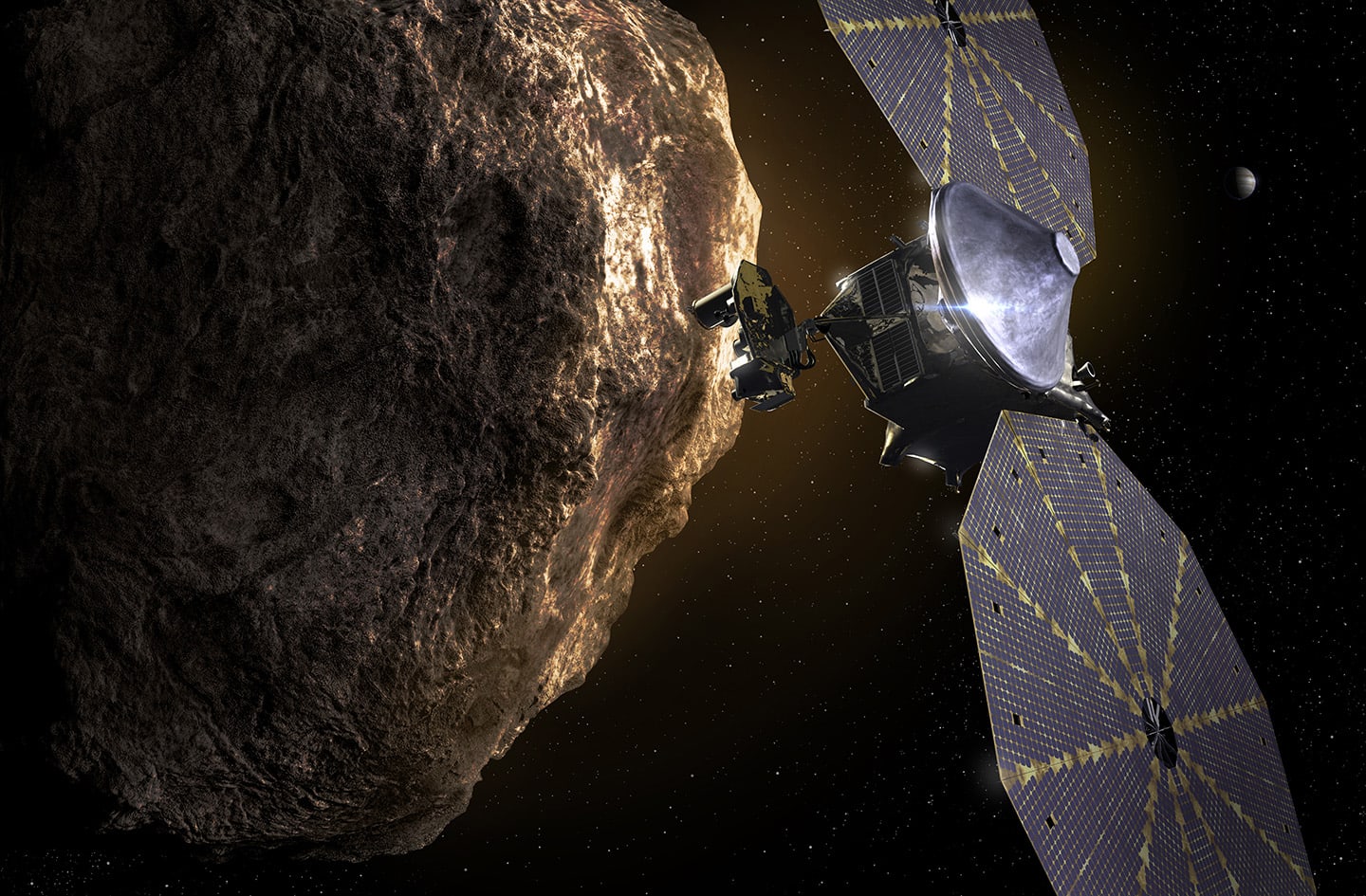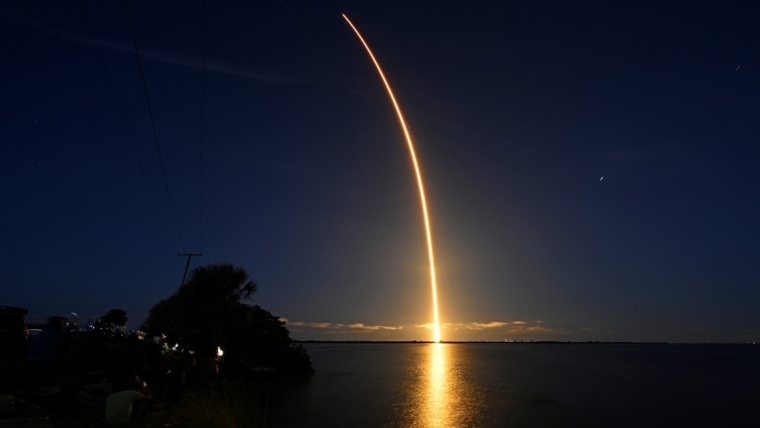NASA is set to launch a spacecraft next month on the agency’s first mission to a group of asteroids near Jupiter.
The Lucy space probe is scheduled to lift off on an Atlas V rocket from Cape Canaveral Space Force Station in Florida on Oct. 16. The 12-year mission is designed to give scientists an up-close view of the so-called Trojan asteroids that share their orbit around the sun with the largest planet in the solar system.
NASA’s Juno spacecraft has been circling Jupiter since 2016 but this will be the agency’s first expedition to study two swarms of space rocks at the gas giant — one group that orbits the sun ahead of Jupiter and another that trails behind the planet.
“With Lucy, we’re going to eight never-before-seen asteroids in 12 years with a single spacecraft,” Tom Statler, the mission’s project scientist at NASA Headquarters in Washington, D.C., said in a statement. “This is a fantastic opportunity for discovery as we probe into our solar system’s distant past.”
The Trojan asteroids are leftovers of the primordial material from which Jupiter and the other outer planets were formed. As such, these space rocks function similar to time capsules from the earliest days of the solar system, roughly 4.5 billion years ago.
The Lucy mission could offer new insights into the history of the solar system, including how all of the planets came to be and why they are aligned in their present configuration, NASA officials said.
Over the course of its 12-year mission, the Lucy spacecraft is expected to travel nearly 4 billion miles. The probe’s first asteroid flyby will occur in 2025, when it whizzes past a space rock in the main asteroid belt between Mars and Jupiter, according to NASA.
The other seven close encounters with Trojan asteroids are set to take place between 2027 and 2033.
The mission is named for the famed discovery of a partial skeleton from a human ancestor that lived more than 3 million years ago. The fossilized remains were dubbed “Lucy” by the paleoanthropologists who discovered them.
“And just as the Lucy fossil provided unique insights into human evolution, the Lucy mission promises to revolutionize our knowledge of planetary origins and the formation of the solar system, including the Earth,” NASA officials wrote in a summary of the expedition.
Source: | This article originally belongs to Nbcnews.com










